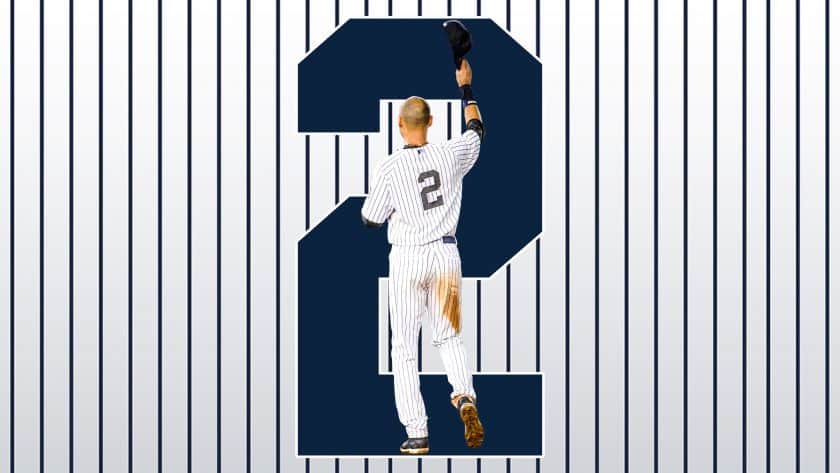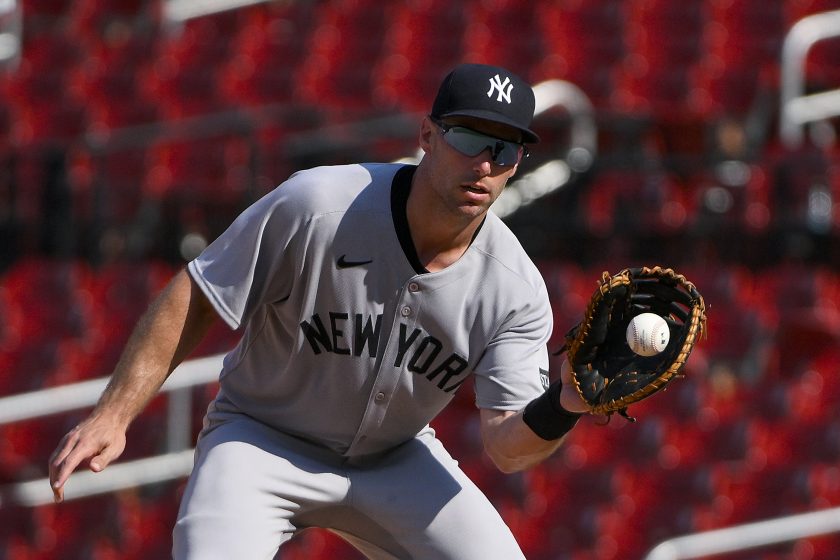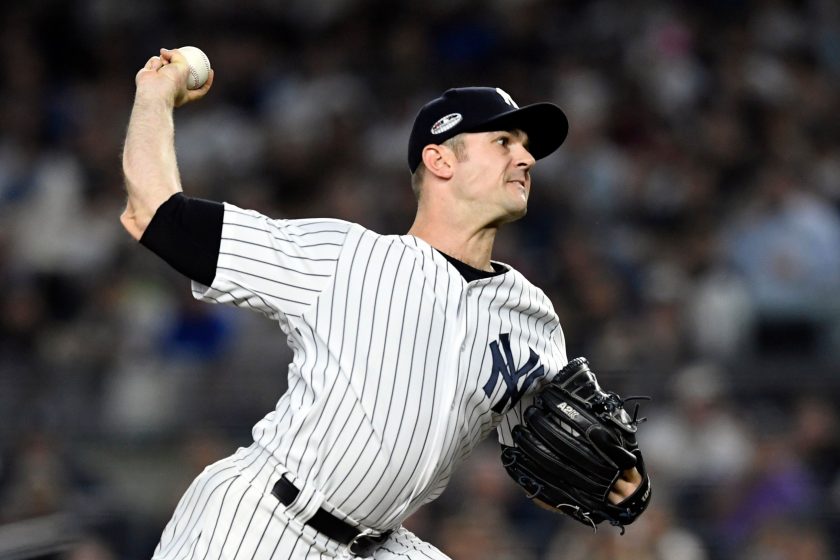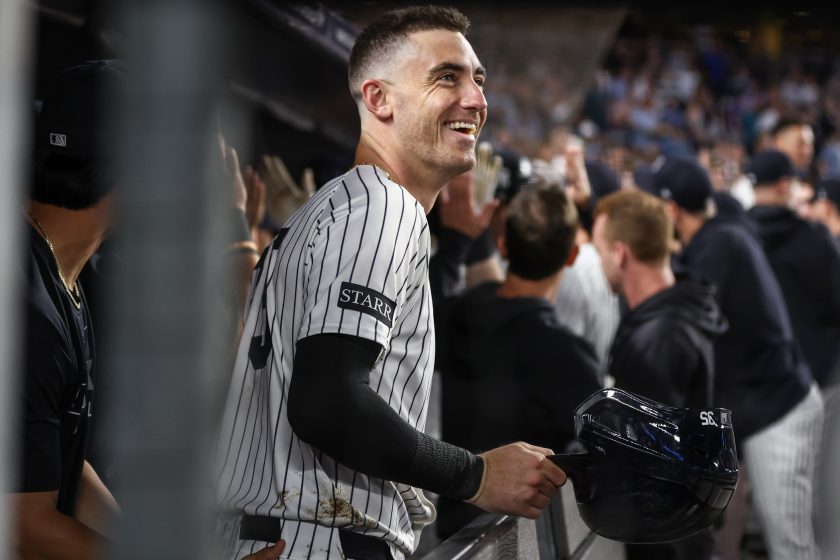New York Yankees SS Derek Jeter deserves HOF unanimity too

Just like teammate Mariano Rivera, New York Yankees great Derek Jeter deserves a unanimous election to the Baseball Hall of Fame.
[sc name=”Josh Benjamin Banner” ]Last week, Mariano Rivera made history in receiving 100 percent of the Hall of Fame vote. Next year, his New York Yankees teammate Derek Jeter deserves the same honor and recognition.
Of course, both Jeter and Rivera are two completely different types of players. Mo was the closer so dominant, the game was practically over with his first pitch. Jeter was a shortstop whose contact hitting broke the mold in a generation focused more on power.
And despite being an anomaly of his time, Derek Jeter was still great. Women and young girls loved him. Men and boys alike wanted to be him. He was the epitome of excellence and never took a moment off, be him on a hot streak or in a horrific slump.
Derek Jeter blessed fans with a special kind of greatness for twenty years, always playing with sportsmanship and grace along the way. He loved the game and its fans more than they loved him.
Which is why despite some flaws on his record, he deserves the same honor as his teammate Rivera.
[sc name=”Yankees Title” text=”An immediate impact” ]The date was April 2, 1996. I was a month past my 10th birthday and had a random day off from school. Maybe it was Easter or Passover, but that’s not important.
My friend Andy, a fellow Yankees fan who lived two blocks away, came over to hang out and play some video games. You know, typical 10-year-old activities. Well, after an hour or so of playing Earthworm Jim, we switched the television to Channel 11, WPIX. It was Opening Day and our Yanks were slated to take on the Cleveland Indians, who won the American League Pennant the year before.
Penciled in at shortstop was, of course, Jeter. He had been up for a cup of coffee the year before and hit .250 with seven RBI in 15 games. There was a lot of hype around him, supposedly, but what did Andy and I know about that? We were just kids. All we cared about was who was on the Yankees and if they were helping them win.
Well, folks, Jeter made a quick impact. Despite batting ninth, he hit his first career home run in New York’s 7-1 win at what was then called Jacobs Field. He finished the season with a .314 batting average, 10 homers, and 78 RBI en route to winning AL Rookie of the Year along with his first World Series ring.

Jeter had arrived, and the rest of baseball was on notice.
[sc name=”Yankees Title” text=”The rest is history” ]The rest, as they say, is history. Jeter finished his storied career with a .310 lifetime batting average. His 3,465 hits rank sixth in baseball history. He won four more World Series titles. He had just 260 career home runs in an era where Mark McGwire, Sammy Sosa, and Barry Bonds ruled the headlines. Jeter also never hit more than 24 homers in a season, nor did he ever win an MVP trophy.

None of it mattered. At no point did Derek Jeter cave to the direction in which baseball was trending, substituting home runs instead of good old-fashioned base hits. He was as true to himself as he was to the New York Yankees. He worked hard, played hard, and was an inspiration to teammates and rivals alike.
14 All-Star selections. Five Gold Gloves. Five World Series rings. A record 200 postseason hits. Derek Jeter meets the criteria of a Hall of Famer and should be rewarded accordingly.
[sc name=”Yankees Title” text=”The inconvenient flaws” ]Except, Derek Jeter was more flawed in some areas than some would care to admit. Despite his five Gold Gloves, he was never that strong a fielder. Per FanGraphs, whose fielding analytics only go back to 2002, he posted an atrocious DRS of -152. His career UZR was an uninspiring -66.1. Sure, the Gold Gloves are nice hardware, but Jeter winning them was purely ceremonial.
Take the 2005 season, for example. Jeter won a Gold Glove despite posting a -27 DRS and -15 UZR. Looking at Fangraphs, Jeter was actually the second-worst defensive shortstop in all MLB. Los Angeles Angels shortstop Orlando Cabrera, by comparison, led all AL shortstops with a DRS of 6 and led the majors with a 19.6 UZR.
[sc name=”Yankees Center” ]Then, there are Jeter’s batting numbers. They’re great on paper, but he also played 20 years. Though ridiculous, the compiler argument holds the slightest amount of water. If I counted all the times I heard Jeter would only make the Hall of Fame because he played for a long time, I’d maybe need three or four hands.
Not only that, but the Baseball Writers Association of America (BBWAA) has some fickle voters. These are the same people who only gave Ken Griffey Jr. 99.3 percent of the vote despite his being one of the deadliest hitters of his generation. The man was a phenomenal defensive center fielder and had 630 career home runs, so not being inducted unanimously is ridiculous.
[sc name=”Yankees Title” text=”Final thoughts” ]
I have one message for Derek Jeter’s critics: get over yourselves. The longtime Yankee captain was not a perfect player, but he epitomized everything which makes a Hall of Famer. He was a leader on and off the field. Much like teammate and new Hall of Famer Mike Mussina, he achieved great success despite odds being stacked against him.
So what if Jeter’s numbers are only the result of an unusually long career? Playing baseball, or any professional sport, for 20 years is incredibly rare. Moreover, it’s even rarer to play that long and be continually effective. Mariano Rivera played 19 years in a position where he rarely threw more than an inning per game, and he’s considered the greatest reliever of all time. Where are the arguments calling him a compiler?
The point is Derek Jeter, despite not fitting a certain mold, was a once-in-a-generation talent. He epitomized hard work and passion from start to finish.
The BBWAA should reward his longevity with the same unanimity granted Mariano Rivera. Otherwise, why have voting standards for the Hall of Fame at all?
[sc name=”Yankees Link Next” link=”https://elitesportsny.com/2019/01/27/predicting-new-york-sports-next-hall-of-fame-inductions/” text=”Predicting New York Sports’ Next Hall Of Fame Inductees” ]Josh Benjamin has been a staff writer at ESNY since 2018. He has had opinions about everything, especially the Yankees and Knicks. He co-hosts the “Bleacher Creatures” podcast and is always looking for new pieces of sports history to uncover, usually with a Yankee Tavern chicken parm sub in hand.






